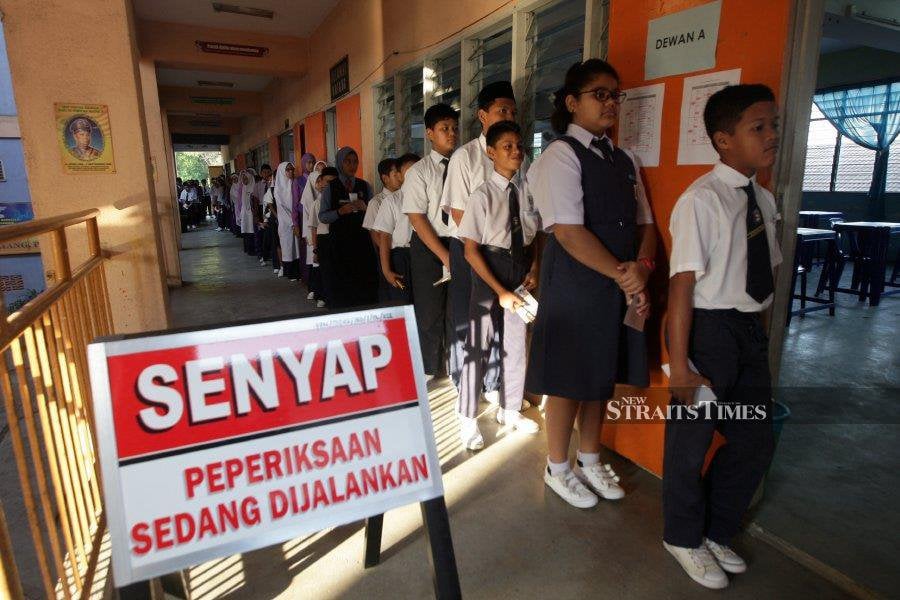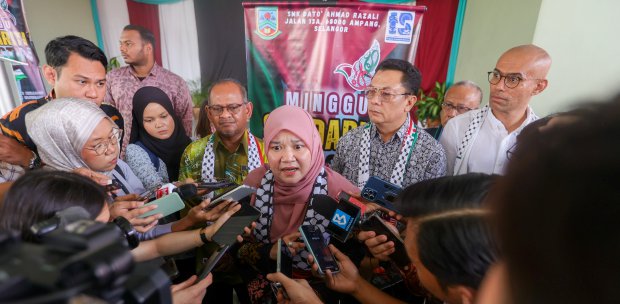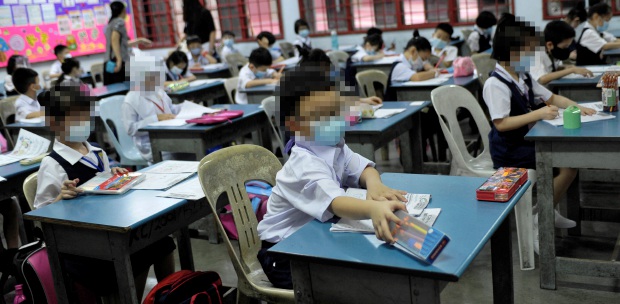KUALA LUMPUR: An education expert and a parents' group have questioned Sarawak's plan to create an assessment examination for Year 6 students in government schools similar to the Ujian Pencapaian Sekolah Rendah (UPSR) which was abolished in 2021.
They said it would be better for Sarawak and the federal Education Ministry align any plans for assessments for students.
They said this in response to the Sarawak government's plan for a UPSR-like assessment examination for Year 6 students in government schools.
Universiti Kebangsaan Malaysia (UKM) Centre of Education and Diversity senior lecturer Dr Anuar Ahmad said that it would be better to discuss and align such plans between the Education Ministry and state government.
He said he acknowledged the Sarawak government effort as they must have seen that the current classroom based assessment may not fit the needs of the schoolchildren there.
"I respect the decision made by the Sarawak government as they believe there's a need for such an examination.
"Sarawak may see the UPSR as a better option because they think the classroom environment might not support classroom assessments."
Anuar said classroom assessments must be implemented in conducive environments, as it becomes challenging for teachers to carry out classroom assessments effectively if there are too many students.
"In developed countries, classrooms typically have 20 to 25 students, which provides a suitable environment for classroom assessments.
"That's why Sarawak might be hesitant to abolish the UPSR as their classrooms may have a high number of students, making it difficult to implement classroom assessments effectively.
"Therefore, I think it would be more appropriate to engage in further discussions and consultations between the Education Ministry and Sarawak to understand how this process can be harmonised," he said.
He added that the Education Ministry should also improve classroom assessments and show their effectiveness with data.
"This will help build public trust in classroom assessments compared to UPSR."
Meanwhile, Parent Action Group for Education (PAGE) chairman Datin Noor Azimah Abdul Rahim cautions the effort as it could lead to teachers focusing solely on test preparation instead of genuine education.
"In the past, the stresses of year end assessments had taken a toll on teachers and students. Teachers were chasing to complete syllabi rather than ensuring students learnt.
"This is where classroom based assessments instead encourage consistency and personal attention."
Noor Azimah added that such assessments can still allow students to achieve the highest of standards without year end assessments if conducted properly.





